Book II, Chapter 23: A Love of That Kind
List of Chapters | Previous Chapter
Hermann and Benedikt stood side by side, looking down from the bay window of the luxurious suite Elischewa Eltzbacher had installed them in. Situated along the southern tracks of Kohlendorf’s only siding, the stately Rheingold Hotel stood out of view of the grubby coal yards and warehouses. But the rafters shook and the ceiling plaster flaked whenever a chuffing locomotive rounded the corner.
Though the suite overlooked the tracks and telegraph wires, the prospect was not without its ambiguous charm. Beyond a huddle of ramshackle shacks in the middle distance, a wooded hill backdropped a scene filled with snow-banks smudged gray from the soot falling from the trains’ smokestacks and the town’s many brick chimneys.
The owner of the hotel, who was also Kohlendorf’s postmaster, was not only an acquaintance of the Abner and Elischewa Eltzbacher but their oldest and most trusted business partner. He had offered to lodge Elischewa’s employees free of charge, providing them with a voucher for a hearty meal whenever they wanted it at his restaurant on the opposite side of the street.
Elischewa confided to Hermann and Benedikt in the lobby before leaving them that she would only be able to stay one night with her brothers.
“We must return tomorrow,” she said. “I had hoped to have more time. But I can’t allow a private matter to jeopardize the safety of Am Haus Löringhof and the inn. We must notify the aldermen of what has happened so they are not left unawares.”
She was referring to what they had learned on entering the town’s north gate at noon. The corporal on duty had unslung his rifle and gestured rudely with the muzzle for the chaise bearing Elischewa to be diverted down a bystreet, because a military parade was marching up the broad central thoroughfare. The balconies were festooned with bunting; and the sidewalks were thronged with spectators.
Ranks of caissons and four-wheeled limbers (carrying Krupp cannons) advanced over the brick road, preceded by a brass band led by a baton-wielding drum major. The spanking clean uniforms and fresh paint on the wagons prompted Benedikt to remark that these men had not seen combat but were basking in the reflected glory of whatever they were commemorating.
Mounted on a high-stepping stallion—color guard at his back—rode a man in full regimentals with a pickelhaube helmet resting on his fleshy head. Even at a distance Hermann recognized Colonel Ludwig Landecker, commander of the Wuppertal 2nd Artillery Regiment, the man Hermann had once regarded as brother but who had inexplicably set his face against him, casting him and Henrietta out of their home three years ago.
Guiding Wellington by the reins, Benedikt conducted the chaise the horse was hauling into an alley; and the trio negotiated the town’s mews and side-streets in the direction of the tack shop owned by Elischewa’s brothers.
The old woman hailed a barber who was clearing snow from his stoop and asked him what all the jubilation was about. “The war’s over,” he said. “France surrendered last week. And Minister-President Otto von Bismarck has issued a proclamation that His Majesty King Friedrich von Hohenzollern has been raised to the rank of Emperor of the Restored German Reich.”
The barber propped his shovel against the door and stepped in his shop, reemerging with a newspaper with all the details. He gave it to Elischewa, who thanked him and read it closely with tokens of distress on her face.
Hours later, when it was just the two of them alone in the hotel room, Benedikt continued to discuss the implications of these developments. But Hermann was a thousand miles away. He was pondering the one-eyed stranger they’d encountered on the road that morning, whose private interaction with him had rattled his nerves (coming as it had on the heels of his finding that scurrilous article accusing him of murdering his Henrietta at the workhouse in Cronenberg).
Benedikt saw the perturbation clouding his friend’s brow and stopped speaking. Once Hermann had mustered the energy to speak, he shared with Benedikt the gist of the article, voicing his concern that someone in Kohlendorf might recognize him.
He was shocked that Benedikt had read the same magazine and had not disposed of it. “You must understand, Hermann, the story of the horror at the workhouse in Cronenberg was rehashed for days in all the regional papers and journals until events in France overtook it.”
“Then that was how you recognized Walter and me when we arrived at the coach inn last November.”
“Walter, yes. You, no. I’d known of you ever since the incident at the Easter market in Cronenberg three years prior. The day you lost. . . everything.”
Hermann had not eaten since the previous night. The predawn trek from the inn over the icy rutted road had worn him down. His face, always lean, had become even more lined and taut. “How did you deduce that the Hermann Tischler mentioned in the press, a wheelwright from Cronenberg, was the boy you’d known only fleetingly in Austria so long ago? Neither my father nor I possessed a surname before our emigration from the Tyrol.”
“I knew because our fate is bound together. I have nearly finished my tale, son of Moritz. Once told, the bond between us will be dissevered forever, and you and I must go our separate ways. Monika has indirectly shared this burden with me for many years. It is unfair to her. We, too, have our lives to live.”
“I understand,” Hermann quietly replied.
Benedikt lowered his head as if reluctant to continue. “I visited your bedside in ’67 as you lay sedated by the morphine the doctors had prescribed to you.”
“What?”
“Somehow I was given to understand that the man in the papers on whom Fate’s hammer had fallen so harshly was none other than the Hermann I’d known in my youth. . . Before Prussia waged war on France, the Eltzbacher Coach Inn was blessed with a full complement of able-bodied workers whom I supervised.
“Having read of the incident, I asked Frau Eltzbacher for a leave of absence to settle a private affair in Cronenberg. She agreed, asking no questions and transferring Monika to her cottage until my return to forestall rumors circulating that the ostler’s wife was cooped up alone in a house of hot-blooded bachelors.
“Monika did not know why I was making this trip. Frankly, neither did I. But I vowed I would be back within the week. I avowed to her that my purpose was honorable, and free of any taint of scandal. Since I have never lied to her, she took me at my word.
“I rode Wellington through the night. On my arrival I inquired into your whereabouts—assuming you would have been moved to a hospital or asylum. But the Rathaus clerk told me you were convalescing at the Landecker Estate. He handed me a clutch of legal papers and, assuming I was heading in that direction, asked me to deliver them there.
“I arrived in the late afternoon. A vernal fog clung about the horse’s fetlocks as I guided him up the long winding drive. I dismounted and knocked on the door. And an elderly French maid in a white bonnet answered—”
“That would’ve been Imogene. She’s Alsatian.”
He shrugged dismissively. “It doesn’t really matter. I only heard her speak French. Behind her, at the foot of the steps, was your friend, the American occultist, Marty P. Fitzsimmons.”
It was now that the conversation took an unusual turn. Hermann looked away and contemplated the furniture of the well-appointed room. There was a wardrobe, a chaise-lounge, a writing desk, and a grandfather clock ticking away the minutes. It was nearly four. The declining sun cast its lusterless beams through the gossamer curtains and fell on the broad bed whose silken canopy was sustained by lacquered bed-posts carved with ornate pineapples, symbols of hospitality.
Hermann stared fixedly at the turned-back coverlet, recalling the day he had been roused by smelling salts from his morphine-induced slumber—if it could even be called that. There had been a reek of carbolic and the sweet odor of chloroform; and as his eyes sharpened into focus Marty was standing over him.
“A bit drafty in here,” Benedikt observed, placing his index finger on his cheekbone as he contemplated the bed. “We may have to cuddle and stroke each other like lovers to keep warm tonight.”
At any other time Hermann might have snapped in outrage at the prurient remark. But he was drained, enervated; and could only sigh wearily and shake his head in disappointment.
Benedikt had been an itinerant schoolmaster and had cultivated the subtle art of turning his an auditor’s thoughts sideways in order to force him to examine a topic from a skewed and unfamiliar angle. He was hinting at an aspect of Marty’s character that Hermann had perhaps sensed but had chosen to ignore. Why is he bringing this up now?
Hermann had been revolted by Benedikt’s sympathetic portrayal of the false Franciscan, the so-called Fr. Matteo di Pàdova, who had bribed his way into Holy Orders with the aim of exacting revenge on his uncle for the murders, not only of his family, but of the young Sephardic apothecary whom he had regarded as his lover—as if a love of that kind between men were possible.
Such diabolical impulses of the flesh ran contrary to God’s will and were utterly incomprehensible to Hermann, whose only source of reference for the vice of the Sodomites was Holy Writ. It infuriated him when clever men like Benedikt offered novel interpretations of Biblical passages that the Authorities of the Church had (in Hermann’s view) already sufficiently and inerrantly explained.
Sensing a line had been crossed, Benedikt went to his kit-bag and removed a pouch of raisins. “You need to eat,” he said, giving it into the younger man. “Sit down. I’m sorry that I upset you. Your friend Marty is a good person, even if his habits are eccentric—in the Greek way.”
“I don’t know what habits you’re talking about. And I don’t need you to tell me he’s a good person.” Hermann sat on the edge of the mattress, eating the raisins broodingly. After a tense lull he spoke again. “I think it peculiar you came to my bedside as I lay incapacitated. Why didn’t you tell me this before?”
“Because, before I could describe to you the séance I was soon to participate in, it was imperative that you knew the story of the haunted funeral of Frater Melchior von Mariahilf am Inn; and of his corpse’s hideous transfiguration on the cliffs overlooking the valley of our youth.”
Hermann cast the pouch aside and clenched his fists “Go on!”
“Marty P. Fitzsimmons introduced himself to me as a mentalist and ratiocinative investigator. His German was fluent but heavily accented, and peppered with Americanism that sometimes made him difficult to follow. But there was a casual urbanity behind his way of speaking that I found not entirely unpleasant.
“I handed the maid the documents (bound in twine) that the clerk at the Rathaus had entrusted me with. She disappeared into the dining room, but lingered at the threshold, eavesdropping.
“The American removed the glove on his left hand and went to shake mine. I thought he was willfully insulting me by extending la main gauche, until I saw that his right hand was ungloved and missing two fingers. His grip was tender, effete. But I felt a strange psychical current pass between us that stirred my pulse.
“I released my hand and stepped back, sizing him up. ‘You knew that I would come.’
“He seemed to recognize something rudimentary in my character that not even I was privy to. ‘No,’ he replied, ‘I didn’t know you would come. But I knew someone would.’ He studied the maid’s shadow on the dining room floor, addressing me without taking his eyes off it. ‘You’re here because of Hermann.’
“‘No—Yes.’ I pointed to his witchy left hand. ‘Perhaps it was you who summoned me.’
“‘You have more faith in my abilities than I.’ Again, he drew on the glove. ‘I sense a mächtig-like Verbindung zwischen de zwei von Ihnen.’ An infelicitous choice of words, to be sure, but one that implied that he knew we shared a bond.
“‘I’ve never met the man,’ I declared.
“‘No, but you knew the boy. . . You’re both from the same place.’
“The look of incredulity that overspread my features elicited a twisted grin from him. But I could tell the popinjay’s wings had been clipped. His blond hair wanted trimming; and what I was sure had once been a twinkle in those wolf-gray eyes had faded. I deduced that your affliction had somehow collaterally affected him.”
Hermann looked away, discomfited by the remark.
“Marty beckoned me to follow him up the steps. His gloved hand, sinister not only in name, touched the bannister with the cloying delicacy of a world-weary demimonde. When we reached the upper landing, we encountered a nurse walking out of your wife’s room. A dim flame quivered in the dark chamber.
“The nurse held a basket of rancid linens. She confided to Marty that she would be leaving for the night once she had deposited the laundry in the hamper. ‘My colleagues have already left. We’ll be back tomorrow before Doctor Scheibe arrives. I gave Herr Tischler his final morphine shot for the day. Before turning in, please ensure the lantern in Frau Tischler’s room is put out.’”
Hermann interrupted the narrative. “Why did they leave a lantern burning in Henrietta’s room?”
“I asked Marty the same question. The physicians believed that, since her eyelids remained almost constantly open, molds might form on the vitreous humor if her eyes were covered with cloth. But with her face unmasked, the force of the sun’s natural rays might permanently blind her. So they kept the drapes closed and placed a dim lantern at her bedside, trusting that her own inner light, now aflutter in the darkness of her mind, might possibly be attracted to the flame, like a moth; and that she might wake up.
“As Marty explained this to me, we overheard the maid downstairs say to herself in a gravelly voice, ‘dégoûtant (disgusting),’ which spurred us to go to the balustrade and look down. The old woman had stepped out of the dining room and was now looking up at us, boldly. The young nurse, ignorant of French, had paid no heed to the old crone and was watching where she was stepping (basket in hand) so that she did not trip down the staircase.
“But the old woman suddenly covered her mouth as she looked up at Marty and me; and her disdain melted instantly into a kind of craven fear. Again, she retreated into the dining room and out of our field of vision. We looked at each other, puzzled. Marty shrugged and crossed the carpet into the smaller room off to the side—the one in which you lay.
“It was brighter here. The curtains were flung open. Next to the bed stood a high-back chair, where Marty had evidently been sitting while keeping watch over you. A faint depression on the sheets indicated where his left arm had rested while holding your right hand with his left one.
“I took in the contents of the room. There was a jumble of vials and medical bottles on a side-table. A small clock occupied the mantel next to a wooden figurine, the memento mori you brought with you when you came to the Eltzbacher Coach Inn. I examined everything else in the room to keep from looking at you.
“Your face was pitiable, colorless, wet with perspiration. Your breathing was labored. Your eyelids were half parted. You were not exactly asleep, but neither were you awake. Infrequent spasms plucked at the nerves of your torpid body. Marty set about adjusting the pillows, tilting your head back so as to open your airway.
“‘It is unseemly for me to be here,’ I said, averting my gaze as I walked to the door. ‘I should not have come.’
“‘Please, don’t go. I need your help. I’ve prayed for. . .’
“‘For what?’ I said, wheeling around and glowering at him.
“His reply was evasive. ‘I believe I can help him in a way the doctors cannot.’
“‘You?—You have no idea what is tormenting him. But I do. I have seen it in the flesh. It must not be provoked.’’
“‘Please. Give me a chance.’
“‘What do you propose?’
“‘I would like to conduct a séance.’ Again, he removed his left glove.
“My shoulders drooped. ‘Then you’re a fraud, a table-rapper. I’ve read of the Fox sisters and their charlatanry.’
“He glanced serenely at the memento mori. Now I, too, was contemplating it.
“‘It was my understanding,’ I ventured, ‘that a séance was for communicating with the dead. But Hermann is not dead.’
“‘No. But there is something undead inside him.’ He grabbed a second chair against the wall and placed it by the other.
“‘What do you want me to do?’
“‘I would like you to sit in that chair and hold his hand, that you may be the conduit between him and me.’
“He picked up the memento mori with his mutilated right hand as I occupied the chair indicated.
“‘Shouldn’t we close the drapes?’ I inquired. ‘To set the mood?’
“‘I’m not a stage performer. The lighting doesn’t matter. But if, like me, you are a sensitive—and I think that you are—then a curtain shall rise, discovering a scene filled with actors. And you won’t even have realized that the show has begun.’”
Standing in the middle of the hotel suite, Benedikt closed his eyes and pantomimed the act of linking hands with Hermann and Marty.
“I held your right hand with my left. Marty did the same to me. I listened to the ticking of the clock and waited for something to happen, but nothing did. I kept glancing at Marty’s shoes, wondering if he was going to try some trick involving wires or a hidden foot pedal. But his legs remained rigid. His feet did not move. I had expected him to say something, but his lips remained sealed. My palms felt cold, clammy. A creeping sensation descended upon me; and I felt that the hands I held on either side of me were those of lifeless men.”
Hermann jumped when the grandfather clock struck four.
“How strange,” Benedikt said. “The same hour. . .”
“What do you mean?” Hermann asked.
“When the mantel clock struck four in your room, I realized that the curtain had risen.”
“How so?”
“Because I entered the mansion at 4 o’clock sharp.”
No sooner had Benedikt said this, than Hermann glanced at his right hand and recalled a suppressed memory from that time. He recalled a dream that he had had while under sedation in which the mantel clock had tolled four and he had opened his eyes to find himself floating over his bedridden body, gazing down at two shadowy figures at his bedside.
“When I looked up,” Benedikt said, “your diaphanous form seemed to hover beneath the ceiling. You were facing down—eyes open, as if entranced.
“‘What is this feeling?’ I asked Marty. ‘Am I even speaking with my lips?’”
“‘You are speaking through the process of thought transference. And the feeling you describe, which I am experiencing as well, is a result of the morphine they have injected into our friend.’
“‘How could you let them do this to him?’
“‘It was not in my power to prevent them.’
“I have often been intoxicated. But never like this. Despite an overweening sense of giddiness and euphoria, a coiling malignancy writhed, serpent-like, throughout my bowels. I wondered if this was the demon. But I had no time to meditate on this matter, because two sets of footsteps were ascending the staircase. It was Marty and me making our way up to the landing.
“We turned in the high-back chairs, expecting to see ourselves at the threshold. But what we beheld instead paralyzed us with fear. Just outside the door (poking around the jamb) was the naked buttocks of a tall, shaggy man. The thing was bent at the waist; and an issue of blood and shit oozed out of its anus, trickling down the glabrous white legs. Rapidly, it sprinted away in the direction of Henrietta’s room. But the gait was four-footed and the sound of cloven hoofs echoed on the floorboards.
“Marty and I leapt from our chairs; but we nearly fainted away due to the drug’s debilitating effects. We leaned against each other for support, giggling as we exited the room. On the landing we were confronted by the nurse coming out of Henrietta’s room. She did not seem to notice our peculiar behavior, but repeated automatically all that she had said to us before; then continued on her way down the steps.
“I felt Marty’s left hand probing the base of my neck. He stroked the scar between my shoulderblades. ‘This,’ he said, ‘is what brought you here. You’ve had this for a while, haven’t you?’”
At the recollection of the experience, Benedikt unconsciously massaged a place at the base of his neck. Then he looked at Hermann and, with an eloquent movement of his eyes, signified that the scar he had alluded to had no immediate bearing on the story and would have to be explained later.
“The nurse was midway down the steps,” Benedikt continued, “Marty and I staggered to the balustrade. He was hanging on my neck, and I felt his lips at my ear.
“‘Now I know everything about you,’ he whispered.
“When I looked down, I saw the maid glaring balefully up at us, an expression of undisguised revulsion on her face. It amused me so much that I nuzzled my cheek against Marty’s, and kissed him full on the lips.
“‘Dégoûtant!’ the old woman said, as she spat out of the corner of her mouth.
“We stepped away from the balustrade, because a man’s voice could be heard coming from Henrietta’s room. ‘I was there when you drew your first breath,’ he said. ‘And I shall be there when you draw your last.’ In awe we gazed at the spectacle before us. Henrietta sat up in her bed. He open eyes not only reflected the lantern light but intensified it. Her breath fogged the air.
“Marty’s American accent had vanished, and the voice he now adopted was that of my master, Fr. Matteo di Pàdova: ‘What is your name?! Who is your God?!’
“‘My king is the light,’ said the werewolf. ‘But my god is an oath.’
“It was the same cryptic response the corpse of Frater Melchior had given on the ledge overlooking Mariahilf. The unholy light filling Henrietta’s eyes now blazed in our own; and, as if enthralled by a mesmerist, we returned to the balustrade and looked down at the maid, who recoiled at our appearance and fled in terror into the dining room.
“Time itself had stopped and nurse had frozen in her descent down the steps. I felt myself floating bodily backwards into the room where you lay. And, when I blinked, I was seated in the high-back chair with Marty at my side, because the clock was tolling again. But now the clock struck five.
“The séance has concluded,’ Marty said. ‘But everything you saw and felt, I saw and felt as well. . .”
“And yet. . .” Hermann said, disappointed. “Nothing came of it. All you learned is what I already knew. The beast is bound to me for the remainder of my days.”
“I learned other things during that interval when time seemed to stop. Things that cannot easily be expressed in words. I saw your wife as she truly is. Though her mortal body had been invaded and possessed by the demon, her indomitable spirit stood apart from it on a higher plane. I also learned how much your friend Marty loves you.”
“He loves me as a brother.”
“I love you as a brother. This was something else. Let me explain. . . Marty predicted that, even though you would recover in the short term, another calamity would soon befall you. He wanted a way to contact me in the event his prediction came to fruition, which it did. I gave him instructions on how to send a message to the Eltzbacher Coach Inn. A few weeks later, a courier arrived with an urgent telegram from Marty, begging me to return to Cronenberg as soon as possible.
“On the day Colonel Ludwig Landecker expelled you and Henrietta from your home, it was I who drove the wagon that took you and your wife to the accommodations Marty had procured for you. He emptied his depository account all of the funds available to him in Europe so that he could pay for the movers and fill the larder of your rented room with food. I believe he also left money with you to help with the expenses. He kept only enough to get to Bremen and book his passage back to America.
“When I shook his left hand for the last time, I momentarily became possessed of his own enhanced powers of intuition. I used these to peer into the man’s heart. I wanted to know why he had acted toward you as he had. I never learned the answer. But what I did learn moved me tremendously. This lonely, fragile man would have sacrificed his immortal soul, if (in doing so) it would have meant your own had been redeemed. I don’t think we have a word in German for that kind of love.”
A tear coursed down Hermann’s cheek, as the shadows in the suite climbed the damask wallpaper. The incessant ticking of the grandfather clock filled what had become a timeless vacancy. Benedikt went to the door and removed his coat from the rack. “Hermann, you need food. I’m hungry too. We have a voucher for a lavish meal. Come!—Let’s go eat. And we’ll raise a glass to your friend, Marty P. Fitzsimmons.”
Continue to Chapter II.24





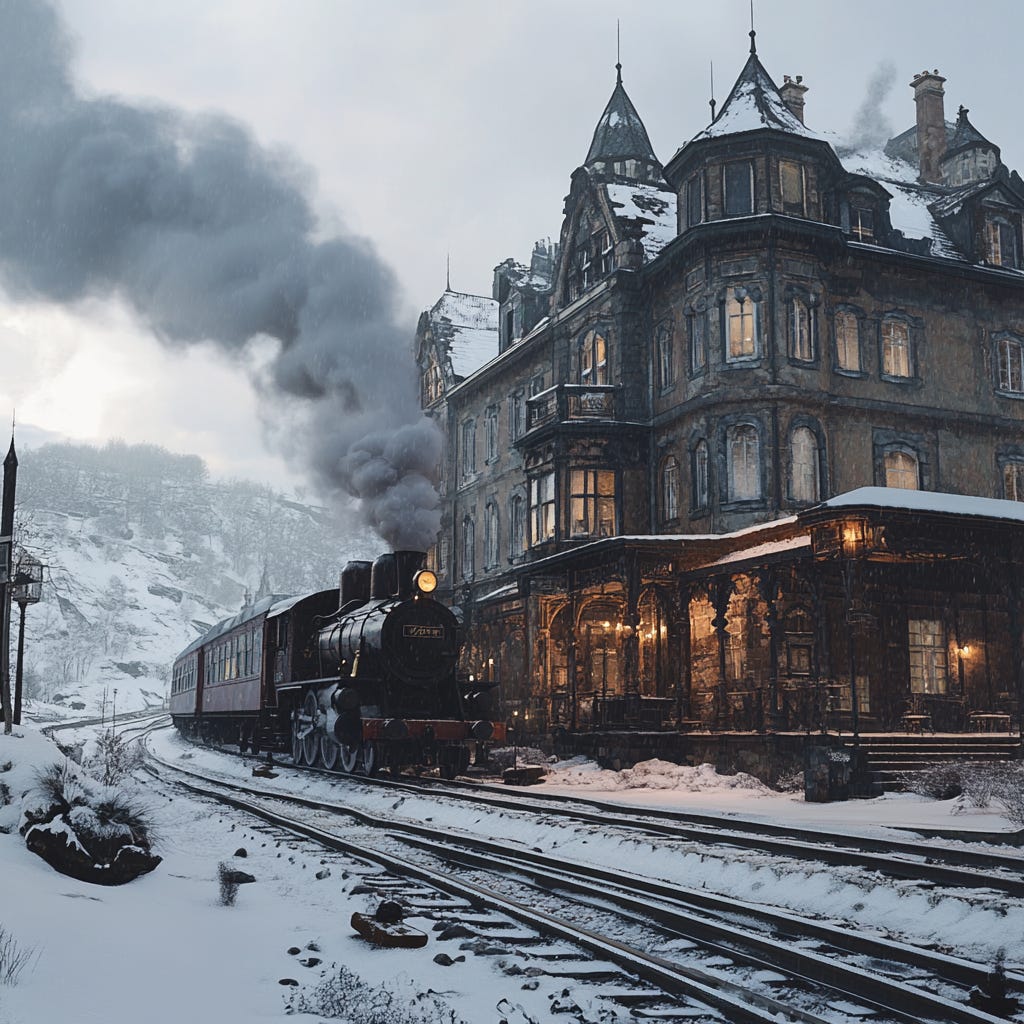
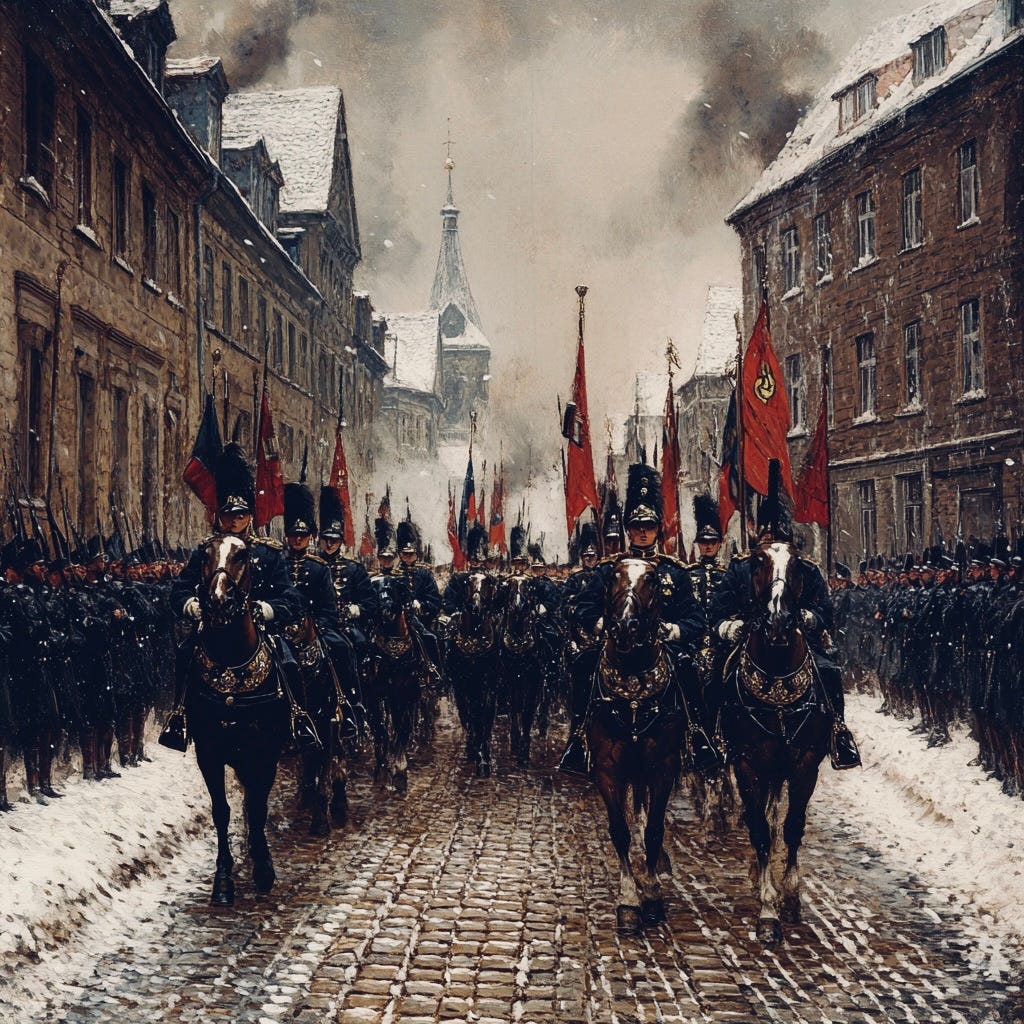
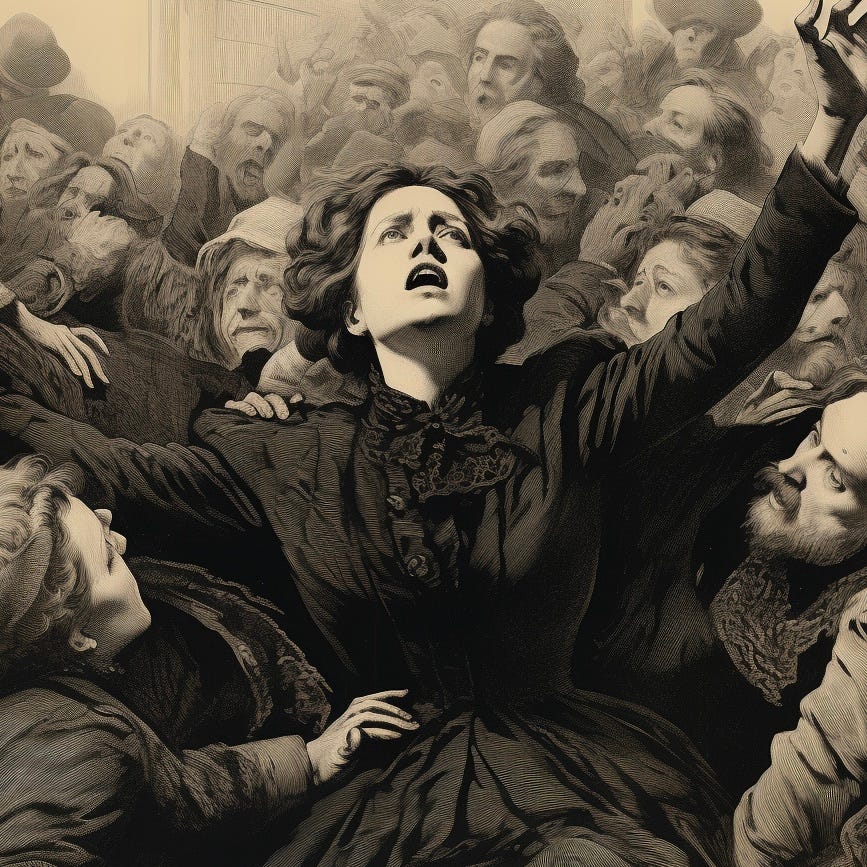
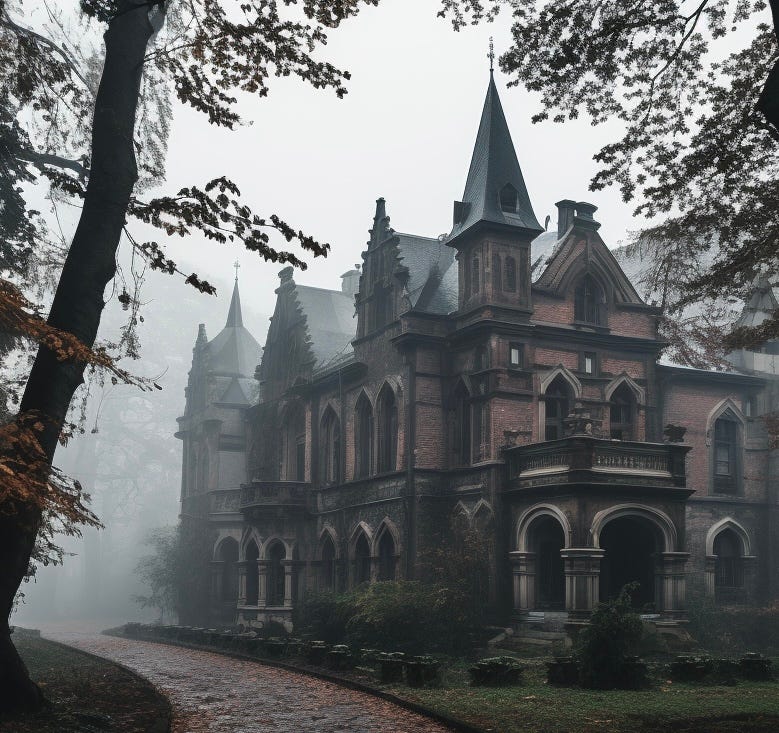
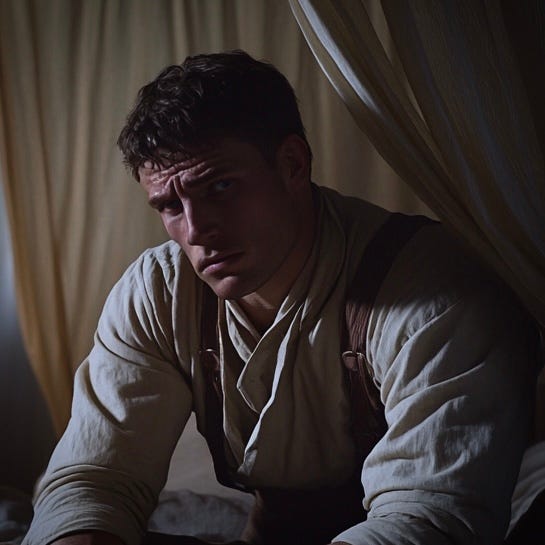
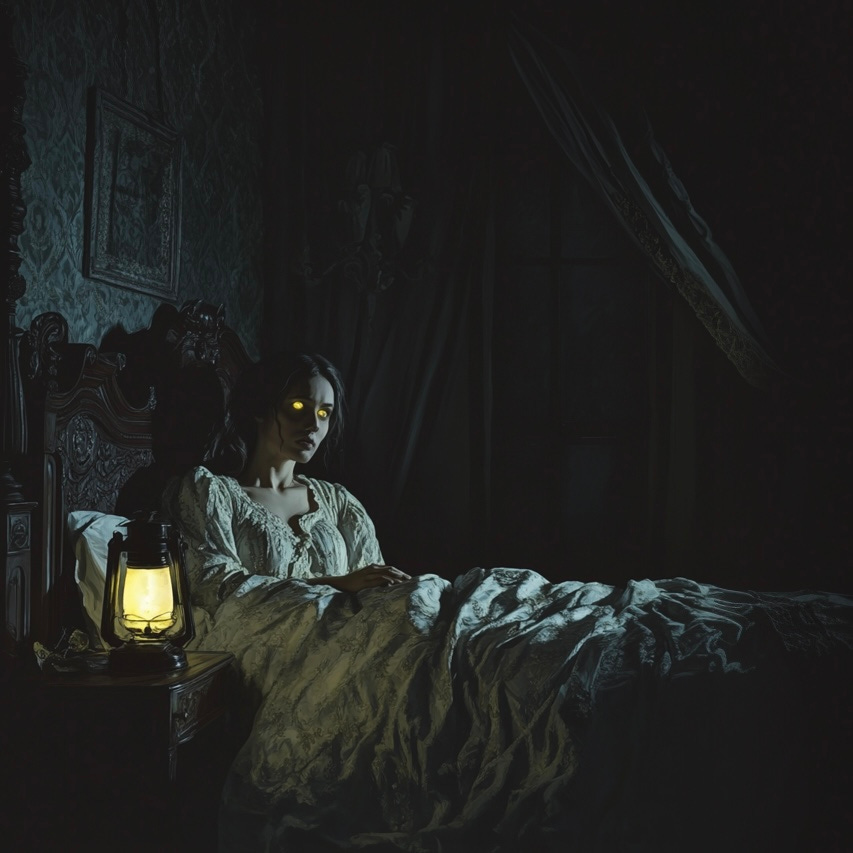


It's great to revisit the Marty character again, even in a flashback--he brings a wonderful dimension to the story. I'm struck by how unlikely the deep relationship between all these characters might otherwise be if not for the horrors that connect them, which also seems true to life.